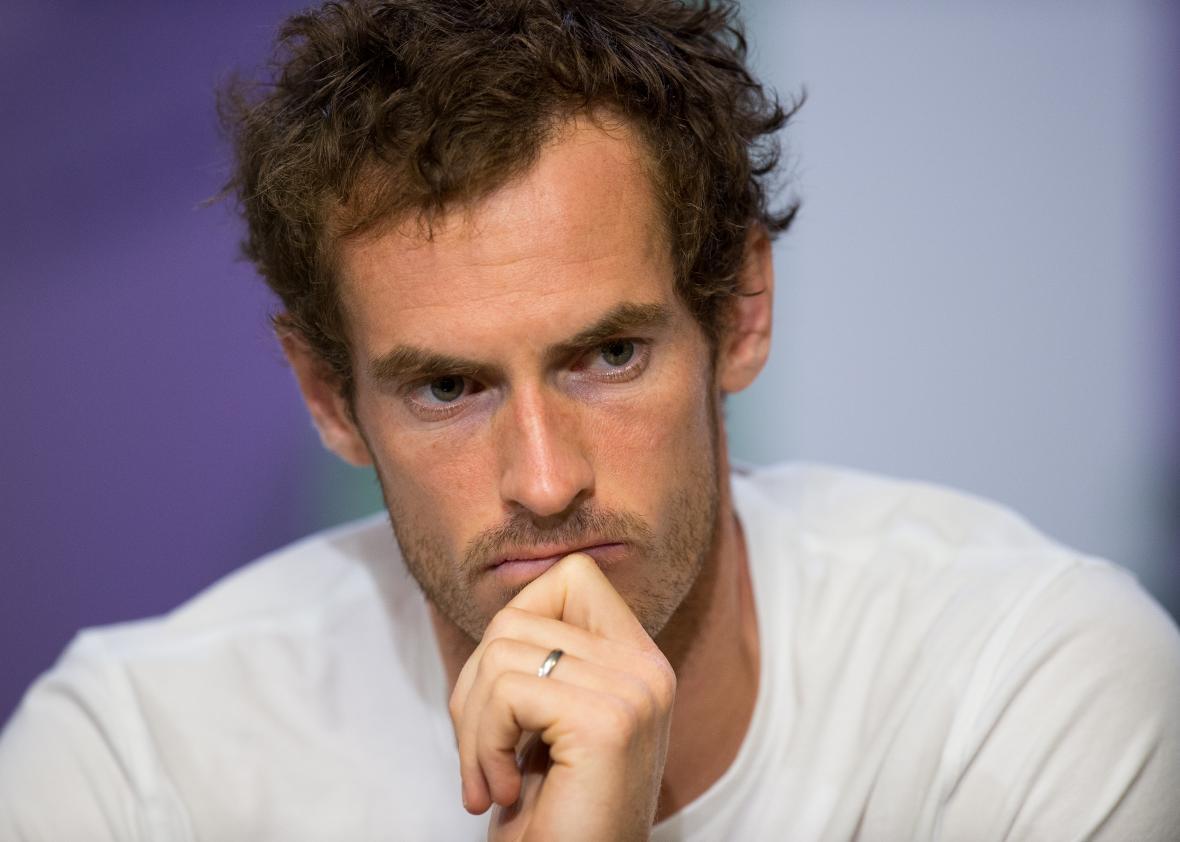Andy Murray is known for many things: his crosscourt slice backhand, his deft grass court play, his occasional on-court remonstrations of his friends and family. He’s also, uniquely in the world of high-level men’s tennis, an ardent and unapologetic feminist. Most recently, when a reporter declared that Sam Querrey—who beat Murray in the Wimbledon quarterfinals—was the first American tennis player to reach the semis of a major championship since 2009, Murray quickly and coolly corrected him: “male player.” (Serena Williams has won 14 grand slams since that year.) When other folks in the press room chuckled, Murray didn’t crack a smile.
This wasn’t a one-off remark from the No. 1 (male) player in the world. Murray, who was famously coached as a child by his mother Judy, regularly touts the achievements of his female counterparts, and he does so in a way that feels natural and automatic rather than performative. Here is a surely not-quite-comprehensive history of Murray’s off-the-cuff feminist remarks.
June 27, 2013: He said he’d be down to play Serena Williams.
Murray kicked up considerable media buzz by saying he would play a match against the world’s best woman. “I’ve never hit with her but she’s obviously an incredible player,” Murray said in the Telegraph. “And I think people would be interested to see the men play against the women to see how the styles match up.” This is the rare instance in which a male tennis player talked about a hypothetical match-up with a woman without stressing that he would totally kick her butt. Serena replied that she would be up for it, too, but alas they have yet to meet on the court.
Sept. 2, 2013: He said he watches women’s tennis and that it’s no big deal.
In an interview with the New York Times, Murray explained that he enjoys keeping up with women’s matches, and that he particularly admires Polish drop shot artist Agnieszka Radwanska. “I mean, I just like tennis, so I follow it,” he said.
June 22, 2014: He defended his decision to hire a female coach.
Just before playing at Wimbledon, Murray was forced to defend his new coach Amélie Mauresmo against criticism from, among others, former British star Virginia Wade. “If it helps bring more female coaches into men’s sport—and women’s sport—that’s a good thing. Because there’s absolutely no reason why someone like Amélie can’t help me,” he said.
Nov. 29, 2014: He defended his coach again.
After Tim Henman questioned whether Mauresmo was good for him, Murray flatly told reporters, “There’s no reason for her to be criticized for anything.”
Jan. 29, 2015: And again.
This time, he spoke up for Mauresumo after a match at the Australian Open: “I think so far this week we have shown that women can be very good coaches as well.”
June 4, 2015: He used the f-word.
In a big day for Murray’s evolution as a feminist, he declared himself one in a post for French publication L’Equipe. In the post, Murray addressed those near-continuous critiques of Mauresmo and credited his family background for his respect for women. “Have I become a feminist?” he asks himself. “Well, if being a feminist is about fighting so that a woman is treated like a man then yes, I suppose I have.”
March 23, 2016: He gave his thoughts on equal pay.
“Women should have equal pay, 100 per cent … the whole [controversy] is pretty disappointing,” he said, per the Guardian.
Aug. 15, 2016: He gave credit where credit was due (to the Williams sisters).
When BBC host John Inverdale declared that Murray was the first person to win two Olympic gold medals in tennis, Murray was quick to correct him. “Well, to defend the singles title,” he said. “I think Venus and Serena have won about four each.”
July 12, 2017: He schooled another journalist.
Once again: “male player.”
